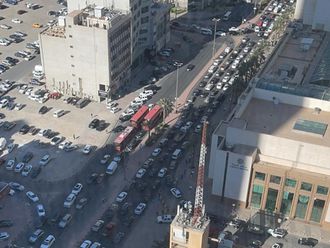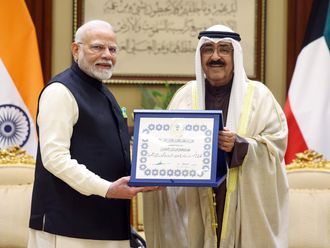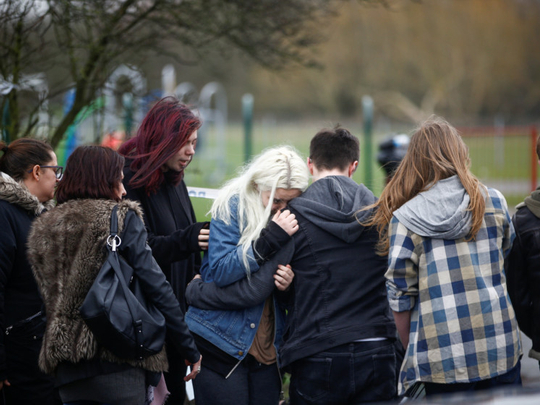
Four months earlier, Jodie Chesney was photographed as she proudly stood outside the famous and historic black door of 10 Downing Street. Then, in her Girl Guides uniform and visiting the official residence of Britain’s Prime Ministers, the 17-year-old from Romford on the eastern edge of London to the north of the River Thames, was likely thinking about the life she had before her.
That life was cut to a sudden end on a Friday night in early March. Chesney was stabbed to death in the playground of a park in Harold Hill, not far from her Romford home.
How have we come to this point where kids can’t have a walk in a park without suffering an unprovoked attack?
Chesney was the 20th murder victim in London for 2019, a year barely three months young. Indeed, on the very first night of what is turning out to be another dark year for knife crime, two young people were stabbed to death in the UK capital before the first dawn broke in 2019.
“How have we come to this point where kids can’t have a walk in a park without suffering an unprovoked attack? If anyone knows anything about this, please contact the police with information,” Jodie’s grandmother Debbie Chesney wrote on Facebook in a desperate plea for anyone who knew anything about the horrific crime to come forward.
“We don’t want anyone else to go through what our family is suffering right now. This has to stop, there are too many young people having their lives cut short by needless violence,” she wrote.
132
murders in London in 2018; 76 of those victims were stabbed.According to official statistics, 38 police forces out of the patchwork of 44 that police England and Wales reported a 7 per cent increase in knife crimes between 2017 and 2018. Last year in London alone, there were 132 murders — and 76 of those victims died from being stabbed.
As the week of the February calendar turned into March, three other young people in London died from stab wounds. But the knife crisis isn’t just confined to the capital. In Birmingham, there were three fatal stabbings in the last two weeks of February alone.
The head of West Midlands Police, which covers Birmingham, says knife crime in the UK is now “a national emergency”.
“This is a national emergency, and we must do something about that exclusion of children because those children are on almost an immediate path into crime and into violence,” said West Midlands Police and Crime Commissioner David Jamieson after the deaths in Britain’s second-largest city of Hazrat Umar, 17; Abdullah Mohammad, 16; and Sidali Mohammad, 16, who were fatally stabbed over a two-week period.
“Sadly, these deaths are just the tip of the iceberg — emergency departments are seeing a steady increase in young people coming in having been caught up in youth violence,” said John Poyton from Redthread, an anti-knife crime charity that works in hospitals to help victims’ families. “There is an urgent need to address the trauma some young people experience in their communities which perpetuates further violence.”
This is a national emergency, and we must do something about that exclusion of children because those children are on almost an immediate path into crime and into violence.
He said it is crucial that all sectors of society take responsibility to tackle violence as a health issue and ensure “our communities are healthy, safe and happy for all young people.”
It was shortly after 9pm on a Friday night when one witness heard arguing and shouting coming from the Romford playground. Then there were cries of “help me” as Jodie was stabbed. By the time police and paramedics responded, the girl guide would be dead an hour later.
“I heard a lot of loud arguing, a lot of loud noise, shouting, followed by a really loud scream,” Krystle Pasha, who lives close to the scene, told Sky News. “The scream was very disturbing to hear. Then I heard someone shouting out ‘help me, help me’. To hear what I heard last night, and to have it right opposite me, is very upsetting indeed.”
Fifty-four-year-old Paul Farenden said his wife had rushed to the scene from her home after hearing screaming and was ‘shocked’ by the amount of blood.
“My wife asked if everything was alright and one of the boys said ‘no, my girlfriend has been stabbed’,” he said. “She put her in the recovery position and waited for the ambulance to turn up. I think she tried to resuscitate her. She thought it was all over then and it would be allright.”
For London Mayor Sadiq Khan, knife crime in the capital is an epidemic, one that he has set up a task force to tackle along with the Home Secretary and the London Metropolitan Police and its Commissioner, Cressida Dick.
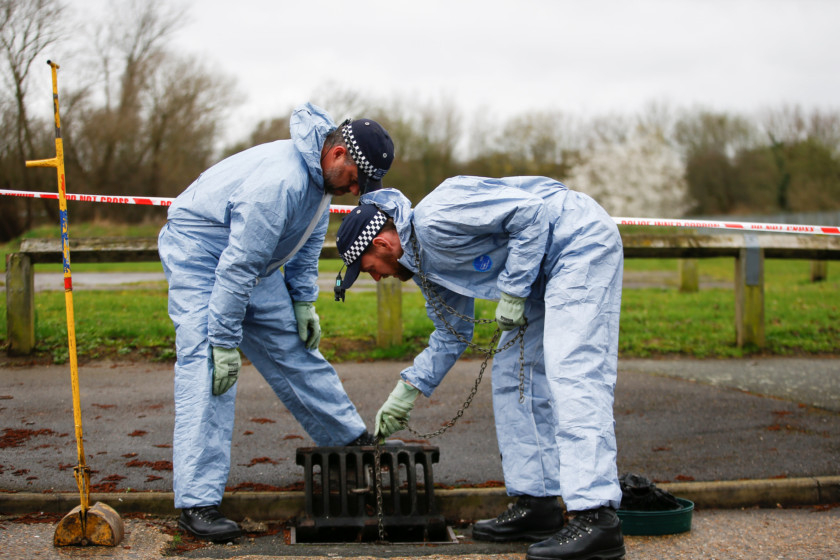
Khan has prioritised funding from London’s budget, setting up a dedicated violent crime task force of 272 officers in February 2018 at a cost £15 million (Dh72 million). Between April then and this January, the task force carried out nearly 5,500 weapons sweeps in London’s parks on open spaces, seized 226 guns and nearly a thousand offensive weapons and charged nearly 2,800 people for weapons, violence and drugs-related offences.
Khan’s council is also spending another £140 million on hiring new police officers to patrol London’s streets this year.
But increased policing, tougher laws and a heightened awareness of knife crime has so far failed to stem the rising tide of attacks with blades and sharp weapons. In 2018, more than 4,200 minors under 18 were cautioned or convicted of carrying knives across England and Wales. Since February, young offenders who were incarcerated for knife crimes and who are released from custody faced being tagged with GPS ankle bracelets as part of a pilot project to try and tackle London’s knife epidemic.
The year-long project will see 100 offenders from the four London boroughs worst-hit by knife crime — Southwark, Croydon, Lewisham and Lambeth — constantly monitored by satellite-location technology. Khan himself says the causes of violent crime are poverty, inequality and a lack of opportunity brought about by years of austerity that have cut social spending and programmes that helped at-risk teens and provided after-school activities.
According to figures from the UK’s Department of Education, programmes that funded youth clubs and after-school activities had their finances cut by one third between 2015 and 2018 — from £622 million to £416 million.
You cannot arrest your way out of this problem.
If there is hope, it comes from looking at measures in Scotland that have reduced violent knife crime substantially. In 2005, the World Health Organisation described Glasgow as being the “murder capital of the world”, and there were 83 murders across the city of 600,000. But instead of purely looking at violence as a criminal issue, they began to look at it as a public health issue. It was a shift in thinking that instead of just solving crimes and putting perpetrators behind bars, it looked at violence with the same thinking medical professionals would use — transmission and risk, symptoms and causes.
“You cannot arrest your way out of this problem,” said Niven Rennie, director of the now-national Scottish Violence Reduction Unit (VRU), funded by the government with a budget of £2 million in 2018.
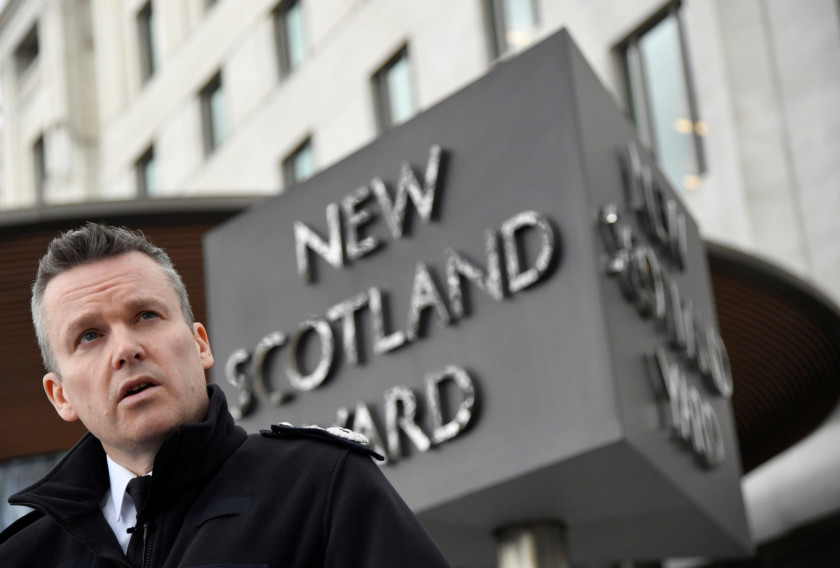
Scottish police plucked ideas from the Cure Violence project in Chicago, Boston’s Operation Ceasefire and Los Angeles’s Homeboy Industries initiatives, and formed partnerships with local teachers, doctors and social workers.
They didn’t abandon traditional policing. Shortly after launching the VRU, police ratcheted up stop-and-search operations and successfully campaigned for legislation that increased the maximum sentences for carrying a knife. But increasingly, they emphasised the interruption and prevention of violent behaviour. They are intervening in hospitals, working with partners in schools and helping former offenders get back to work.
And it’s working. Over the past decade, Glasgow has seen a 60 per cent drop in murders and violent crime is at historic lows.
The notion that the public health approach may have contributed to the decline has brought officers from as far afield as Canada and New Zealand to Glasgow to learn more.
Back in London, Khan has also announced a similar VRU plan modelled on the Scottish office. “We have listened and researched the public health approaches in cities like Glasgow, where their own long-term approach over more than a decade has delivered large reductions in violence,” Khan said.
After the Friday night death of Jodie Chesney, Khan said he was devastated.
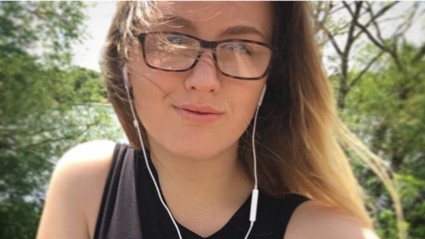
“It fills me with anger that violent criminals are targeting young Londoners with their whole lives before them,” he said.
At that Romford playground, a makeshift memorial of flowers grew in the hours after Jodie’s death.
“We love you. You are in all of our hearts,” one message read. Another read: “You are so strong. We will always remember you.”
-With inputs from agencies
Mick O’Reilly is the Gulf News Foreign Correspondent based in Europe.







